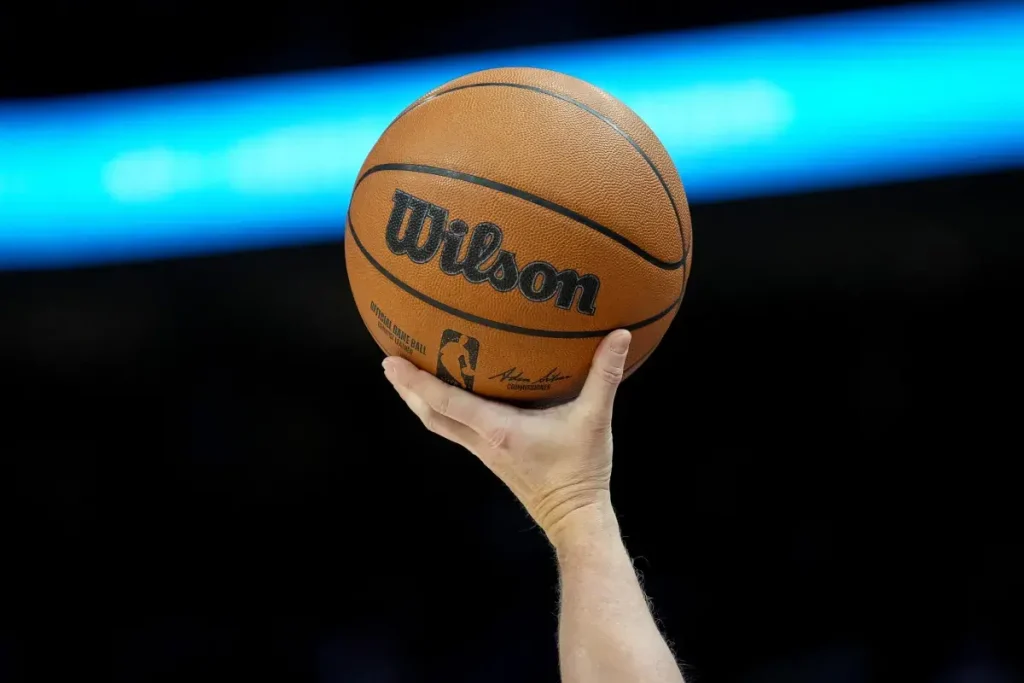NBA Legend Lenny Wilkens Passes Away at 88: A Life of Excellence On and Off the Court
The basketball world mourns the loss of one of its most distinguished figures as Lenny Wilkens, a man who achieved remarkable success as both a player and coach, has passed away at the age of 88. His death, reported by Tim Booth of The Seattle Times, marks the end of an era for the NBA and particularly for the city of Seattle, where Wilkens left an indelible mark. Wilkens belongs to an elite group of only five individuals ever inducted into the Basketball Hall of Fame twice – first as a player in 1989 and later as a coach in 1998. This rare double recognition speaks to his extraordinary versatility and excellence in the sport. Further cementing his legacy, Wilkens was named to the NBA’s 75th Anniversary Team in 2022, acknowledging him as one of the greatest figures in basketball history. NBA Commissioner Adam Silver captured Wilkens’ significance perfectly when he stated that even beyond his impressive basketball accomplishments, including two Olympic gold medals and an NBA championship, it was Wilkens’ commitment to service that truly set him apart – especially in Seattle, where a statue stands in his honor.
Wilkens’ playing career established him as one of the premier point guards of his era. His skill and leadership were perhaps most evident during the 1967-68 season, when he finished second in MVP voting, behind only the legendary Wilt Chamberlain. This remarkable achievement illustrates how highly regarded Wilkens was among his peers and observers of the game. His playing style embodied intelligence, precision, and effectiveness rather than flashiness, characteristics that would later define his coaching philosophy as well. The respect he commanded throughout the league was rooted not just in his athletic abilities but in his understanding of the game’s nuances and his leadership qualities. Wilkens’ playing career alone would have secured his place in basketball history, but it was merely the first chapter in his remarkable basketball journey.
As a coach, Wilkens achieved what many players dream of but few accomplish – leading a team to an NBA championship. After guiding the Seattle SuperSonics to the Finals in 1978, where they fell short, he returned the following year to capture the title. This championship in 1979 remains Seattle’s only NBA championship and stands as a crowning achievement in Wilkens’ career. His coaching longevity was equally impressive – he holds the all-time record for NBA regular season games coached at 2,487, a testament to his enduring value to the league. With 1,332 regular season victories (a .536 win percentage), Wilkens ranks third all-time behind only Gregg Popovich and Don Nelson. Over his 32 seasons as head coach for the SuperSonics, Cleveland Cavaliers, Atlanta Hawks, Toronto Raptors, and New York Knicks, he led his teams to 20 playoff appearances, demonstrating consistent excellence across different franchises and eras.
Few figures in basketball have been as beloved in a single city as Wilkens was in Seattle. His connection to the community ran deep, and the city reciprocated his affection. In recognition of his contributions, Seattle honored Wilkens with a bronze statue outside Climate Pledge Arena, home to the Seattle Storm. Upon receiving this honor, Wilkens expressed genuine surprise and gratitude: “I’m just overwhelmed. It’s not something I ever thought much about or anything like that. This has been a great community.” The statue serves not just as a tribute to Wilkens’ basketball achievements but as a symbol of his integration into the fabric of Seattle. What began as a temporary assignment for Wilkens evolved into a lifelong bond with the city. As he explained, “When I first got here, I thought about going back East, but we liked it out here my wife and I… and decided it would be a wonderful place to make a home.”
Wilkens remained a passionate advocate for Seattle basketball even after the SuperSonics relocated to Oklahoma City in 2008. He frequently spoke about the city’s deep basketball tradition and the void left by the team’s departure. “This is basketball country,” Wilkens told The Seattle Times in 2022. “We should have never lost our team and I hope that this helps in some way get another team back.” His comments reflected not just personal sentiment but a genuine concern for the community that had embraced him. He took particular pride in the 1979 championship team, believing they never received proper recognition for their achievements. “Everywhere I go, people talk about the Sonics and about that time when we won a championship. I don’t think that team gets the credit that it deserves,” Wilkens noted. He also highlighted how the players from that team – Gus Williams, Fred Brown, Jack Sikma, and others – became integral parts of the community, with many continuing to make Seattle their home long after their playing days concluded.
Lenny Wilkens’ legacy extends far beyond statistics and accolades. As Commissioner Silver noted, he influenced countless young people and generations of players and coaches who saw in him not just a teammate or coach but “an extraordinary mentor who led with integrity and true class.” His approach to basketball and to life embodied dignity, intelligence, and commitment to excellence. From his days as an elite point guard to his record-setting coaching career to his community service in Seattle, Wilkens conducted himself with remarkable consistency of character. Perhaps the most telling aspect of his legacy is that despite his immense success, those who knew him speak first of his personal qualities – his integrity, his mentorship, his class – rather than his basketball achievements. As the NBA and the city of Seattle mourn his passing, they celebrate not just one of basketball’s greatest figures but a man whose impact transcended the sport he loved and served so well.


